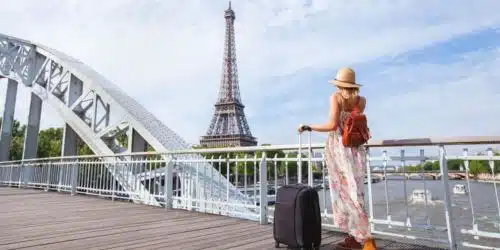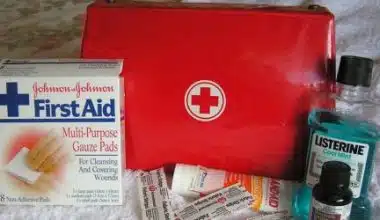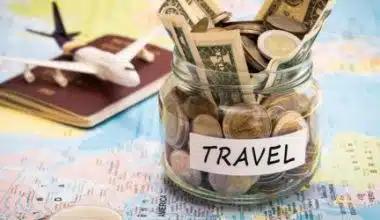France is a dream destination for travelers all over the world because of its rich history, gorgeous landscapes, and unique cultural legacy. A trip to France offers a unique experience, from the beautiful streets of Paris to the gorgeous countryside. In this blog article, we will walk you through the process of planning a trip to France, go over the costs, and introduce attractive travel packages to make your trip simple and magical.
Trip to France
Paris, France’s capital city, has an enticing charm that draws people in from the moment they arrive. Along the vast boulevards, you’ll see iconic sights like the Eiffel Tower, the Louvre Museum, and Notre Dame Cathedral. A leisurely walk along the Seine River, with its gorgeous bridges and charming cafes, is the finest way to appreciate the city’s romantic ambiance. Immerse yourself in Montmartre’s bustling art scene or browse haute couture on the Champs-Élysées.
Uncovering Cultural Treasures of France
France is a country rich in history and culture, with a wealth of cultural riches just waiting to be explored. Visitors can immerse themselves in the country’s unique regional cultures and discover its architectural wonders, artistic masterpieces, and ancient monuments beyond the bustling streets of Paris. France offers a compelling trip through time and a deeper understanding of its rich cultural fabric, from grand palaces to quaint towns.
The Palace of Versailles is a must-see cultural treasure in France. This sumptuous palace, located just outside of Paris, served as the abode of French kings and queens, displaying their power and magnificence. Stroll around the perfectly groomed grounds and marvel at the stunning statues and artwork that adorn the castle. The Palace of Versailles is a UNESCO World Heritage Site that immerses visitors in the opulent world of the French aristocracy.
Plan Trip to France
Planning a trip to France may be a thrilling experience since the country is rich in cultural, historical, and natural attractions. It is critical to organize your vacation ahead of time to create a great experience. Here are some useful recommendations to help you plan your Trip to France, from choosing the ideal time to visit to organizing transportation and lodging.
#1. Choose the Best Time to Visit
France has four distinct seasons, each with its own special appeal. Summer (June through August) is a popular and colorful season, with longer days and various festivities. Spring (April to May) and autumn (September to October) have moderate weather and fewer crowds, making them the perfect times to visit major attractions. Winter (December to February) has a lovely ambiance, especially in locations such as Alsace, which has charming Christmas markets.
#2. Choose and Research Your Destinations
France is a diversified country with a variety of enticing tourist spots. Investigate the locations and places that pique your interest, taking into account their cultural significance, attractions, and activities. Determine your must-see places, whether they are Paris’ renowned landmarks, Normandy’s ancient sites, or the wine districts of Bordeaux or Burgundy, and organize your schedule accordingly.
#3. Make Transportation Arrangements
France has a large and efficient transportation system that makes getting around reasonably easy. Depending on your itinerary and personal preferences, consider whether you want to travel by aircraft, train, or vehicle. The high-speed train network (TGV) is a great way to travel between big cities, while regional trains and buses connect to smaller towns and villages.
#4. Safe Place to Stay
France has a vast selection of hotel options to suit all budgets and tastes. There is something for everyone, from luxury hotels to beautiful bed & breakfasts, boutique hotels, and vacation rentals. Determine the type of lodging that best suits your vacation style and budget. To secure your preferred accommodations in famous tourist spots such as Paris or the French Riviera, book well in advance.
#5. Learn the Fundamentals of French Phrases
While many people in France understand English, learning a few basic French phrases is always useful and appreciated. Greetings, courteous expressions, and simple phrases for ordering food or asking for directions can all help you communicate with locals more effectively. French people frequently appreciate the effort made to speak their language and may respond more warmly as a result.
#6. Investigate Local Customs and Etiquette
To ensure a respectful and flawless trip, become acquainted with the local customs and etiquette in France. For example, in more casual contexts, it is traditional to greet someone with a handshake or a kiss on the cheek. Understanding dining etiquette, such as keeping your hands on the table during meals or waiting for the host to begin eating, can also help you immerse yourself in the culture.
#7. Explore Areas Other Than Tourist Attractions
While prominent sites and popular destinations are unquestionably worthwhile, don’t be afraid to travel off the beaten path and discover lesser-known areas. France is full of hidden treasures, quaint villages, and breathtaking natural vistas.
Planning your trip to France helps you maximize your time there and immerse yourself in the country’s rich cultural history. As you travel through France, embrace its diversity, immerse yourself in its dynamic culture, and make lifelong memories.
Trip to France Cost
Understanding the costs involved is essential for planning a cost-effective trip to France. Accommodation, transportation, meals, and activities will all incur additional costs. Luxury hotels in downtown Paris are available, as are beautiful bed and breakfasts in the countryside. Take into account currency exchange rates as well as any additional fees or taxes when calculating the Trip cost to France. To locate the best cost, research and compare rates for flights, rail tickets, and local transportation.
Cost Calculation: Planning your Trip to France
Budgeting is an important part of trip planning since it ensures that you have a clear grasp of the costs associated with visiting France. Calculating the costs of everything in advance, from lodging and transportation to meals, activities, and incidental charges, will help you manage your budget successfully. Here are some important considerations to consider when budgeting for your trip to France:
#1. Transportation Costs
Choose the modes of transportation that best suit your itinerary and budget. If you plan to fly to France, look into flight prices and consider booking ahead of time to get the best deals. Compare the costs of rail tickets, regional flights, and car rentals if you’ll be traveling within the country.
#2. Accommodation Expenses
The cost of lodging might vary substantially based on your tastes and the areas you select. Investigate several types of lodging, such as hotels, bed & breakfasts, and vacation rentals, to find the best possibilities for your budget. Prices in major cities and popular tourist attractions tend to be higher, so try staying in adjacent towns or areas to save money.
#3. Meal and Dining Expenses
Food is an important aspect of the French experience, although dining costs vary based on your options. Restaurants, especially in tourist locations, are generally more expensive than local cafés or bistros. To save money, explore the prix-fixe menu or look for affordable street food options.
#4. Activities and Sightseeing
Examine the places and activities you intend to visit and their associated costs. Check to see if any discounts are offered for students, the elderly, or specified time slots at museums and sites. Furthermore, several cities provide tourist passes that enable discounted entry to multiple attractions. Prioritize the attractions that most interest you and budget appropriately.
#5. Miscellaneous Expenses
Local transit within cities (metro, bus, or tram), souvenirs, shopping, and any other activities or excursions not previously planned are examples of miscellaneous expenses. Plan for these costs by allocating a tiny portion of your budget to unexpected purchases or experiences.
#6. Exchange Rates and Currency Conversion
Keep up-to-date on the exchange rates between your home currency and the Euro. Check the latest exchange rates and consider exchanging currency before your trip or when you get to France. Be aware of potential currency conversion fees and costs, and compare rates from many sources to obtain the greatest value for your money.
#7. Contingency Fund
It’s a good idea to set aside money for emergencies or unexpected bills. This money can act as a safety net in the event of unanticipated occurrences, giving you financial flexibility during your vacation.
It is critical to calculate the costs of your trip to France for good budgeting and financial planning. Remember to do your homework, compare prices, and make informed decisions in order to maximize your expenditure while experiencing the best France has to offer.
Trip to France Package
Consider trip-to-France Packages to streamline your travel arrangements and save time and money. These packages frequently include flights, lodging, transportation, and guided excursions, making for a stress-free trip. Look for packages that are tailored to your preferences, such as a cultural immersion in Paris or a wine-tasting vacation in the Bordeaux region. Use the knowledge of travel firms or internet platforms that specialize in French travel to ensure a well-planned and personalized itinerary.
Taking Advantage of Travel Packages: Enhancing Your Trip to France
Travel packages might be a fantastic way to streamline your vacation preparation and maximize your time in France. These packages frequently incorporate transportation, lodging, and numerous activities, providing convenience as well as potential cost savings. In this section, we will look at the benefits of travel packages and how to make the most of them on your trip to France.
#1. Time and Cost Efficiency
Travel packages are intended to simplify trip planning by combining several components of your vacation into a single package. Depending on the package, they may include flights, lodging, transportation, guided excursions, and even meals. Choosing a bundle saves you time that would otherwise be spent researching and booking each component separately.
#2. Customization Options
Many vacation packages have customization options that allow you to personalize the package to your exact needs. You can customize the length of your stay, the destinations you want to visit, and the activities you want to participate in.
#3. Local Knowledge and Expertise
Travel packages frequently include the knowledge of local tour operators or travel companies. These experts are well-versed in the destinations and can provide useful insights, recommendations, and assistance throughout your trip. They may include guided tours, access to local activities, and insider information that may enhance your overall trip to France.
#4. Additional Inclusions and Upgrades
Travel packages may offer extra bonuses or improvements that can improve your experience. These could include free dinners, spa treatments, early access to attractions, or exclusive experiences. When looking at different packages, keep these extra items and upgrades in mind to make the most of your journey.
#5. Research and Compare Packages
Conduct extensive research and evaluate multiple travel packages to locate the one that best meets your demands and fits within your budget. Consider the destinations included, the quality of the accommodations, the tour operator’s reputation, and customer feedback.
#6. Read the Fine Print
Before making a final decision, thoroughly read the vacation package’s terms and conditions. Take note of any limitations, cancellation rules, or additional fees that may apply. Understanding the fine print can allow you to make an informed decision and avoid surprises or misunderstandings later on.
#7. Customize and Extend Your Trip
If you find a travel package that appeals to you but wish to prolong your stay or add more activities, ask the tour operator or travel agency about change options. They might be able to help you customize the package to meet your requirements. Consider combining a holiday package with some independent travel to explore areas or sites not included in the package.
Using travel packages might be a great way to streamline your trip planning and maximize your time in France. You can make the most of vacation packages and create great moments in the enchanting country of France by completing careful research, comparing packages, reading the tiny print, and tailoring your trip where possible.
How much will it cost to visit France?
The cost of visiting France can vary substantially based on a variety of criteria, such as the length of your trip, the towns or areas you intend to visit, your travel style, lodging options, food preferences, and the activities you choose to participate in. A 7-day trip to France costs an average of $1,127 for a single traveler, $1,750 for a couple, and $2,256 for a family of four.
What is the best time to visit France?
Your own interests, the locations you plan to visit, and the activities you decide to partake in will determine the best time to visit France. France has a varied climate, with differences between regions. Here’s a rundown of the seasons and factors to consider when deciding when to go:
- Spring (April to June): Spring is generally considered a favorable time to visit France.
- Summer (July to August): Summer is the peak tourist season in France, especially in coastal areas and major cities.
- Autumn (September to October): Autumn in France offers pleasant weather, with mild temperatures and fewer crowds.
- Winter (November to February): Winter in France brings colder temperatures, especially in the northern and mountainous regions.
- Shoulder Seasons: The shoulder seasons of spring (April-May) and autumn (September-October) are generally considered favorable times to visit France.
Is France an expensive place to visit?
France can be considered a relatively expensive destination compared to some other countries. The region you are visiting, your travel preferences, lodging options, culinary preferences, and the activities you intend to partake in all affect the cost of your trip to France.
Can I wear jeans in Paris?
Jeans are very acceptable in Paris. In the metropolis, jeans are a versatile and commonly acceptable dress option. Parisians have a diversified sense of style, and you’ll see people dressed in a wide range of clothing, including jeans, all across the city.
What month is the cheapest to fly to Paris?
The lowest fares are normally available in late November, early December, January, February, and early March.
What months are cheap to go to France?
The low or shoulder seasons are when it is often considered cheaper to visit France, including Paris. These periods typically have lower travel demand, resulting in potentially more affordable prices for flights, accommodations, and tourist activities. Here are some months to consider for less expensive travel to France:
- January and February
- March, April, October, and November
- December (excluding holidays)
Conclusion
A trip to France opens the door to an enthralling world of art, history, food, and natural beauty. From the enthralling streets of Paris to the tranquil countryside and glitzy coastlines, each location has its own distinct appeal and experiences to offer. You can create a great experience that appeals to your interests and tastes by carefully organizing your trip, considering pricing variables, and browsing travel packages.
- 10 BEST FRANCE WINE TOURS AGENCY IN 2023-2024
- BEST ITALY VACATION PACKAGES FOR 2023/2024
- BEST FRENCH RIVER CRUISES IN 2023
- 12 BEST COSTA RICA VACATION PACKAGE IN 2023
- HOW TO PLAN A TRIP: Detailed Guide






